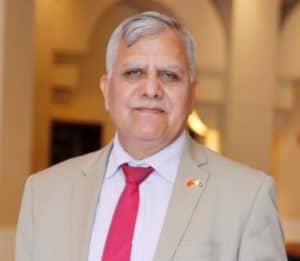By Prof. Engr. Zamir Ahmed Awan
Iran and Venezuela, both founding members of the Organization of the Petroleum Exporting Countries (OPEC), have had a bilateral relationship since before Iran’s 1979 revolution. When the shah was overthrown in 1979, Venezuela was one of the first countries to recognize the new Iranian government.

The leadership of both countries were very cordial and friendly and have been strengthening relations through mutual visits. The two countries signed an estimated 300 agreements of varying importance and value, ranging from working on low-income housing developments to cement plants and car factories. They even established a joint development fund and opened a development bank under the structure of Iran’s Export Development Bank (EDBI). By 2012, Iran’s investments and loans in Venezuela were valued at $15 billion.
Both countries feel victims of the US sanctions, which served as a strong base for their close friendship.
Venezuelan President Nicolas Maduro led a high-powered delegation to visit Iran on June 10, and interact with the Iranian leadership. The discussion covered a wide range of agendas, leading toward a 20-year “cooperation road map”.
The Venezuelan president met his Iranian counterpart Ebrahim Raisi on Saturday at the Saadabad Palace in Tehran, a day after arriving in the Iranian capital with a high-level political and economic delegation on a two-day trip.
In a joint conference following their meeting, the two hailed raising bilateral relations to the “strategic” level and agreed both countries can boost ties in trade in addition to the energy, science, technology, agriculture, and tourism sectors.
The cooperation roadmap, the exact details of which have been kept under wraps, was signed by the foreign ministers of the two nations in the presence of their respective presidents.
The delegations from both countries discussed details of the future cooperation, as the leaders focused on issues of mutual cooperation on economic issues amid crippling economic crises because of sanctions.
“The Islamic Republic of Iran’s foreign policy has always been to have relations with independent countries, and Venezuela showed that it has had incredible resistance against threats and sanctions by enemies and imperialism,” Raisi said, sitting next to Maduro.
Like Venezuela, he added, Iran has also faced sanctions by the US and others for decades but has chosen to regard them as an opportunity to move the country forward.
Raisi said Iran has been successful in breaking the “maximum pressure” policy that Washington has embarked on since unilaterally abandoning Iran’s 2015 nuclear deal with world powers in 2018. Despite several rounds of talks, no breakthrough has been achieved to revive the landmark deal that would likely grant sanctions relief in exchange for curbs on Tehran’s nuclear program. “The successful experience of the two countries has shown that the only way to counter the heavy pressures and hybrid war of the US is to stand up against it and resist,” he was quoted as telling Maduro on his website.
Maduro also praised Venezuela’s “resistance against sanctions and imperialism” since 2017 and said his country aims to use Iran’s experiences in this area and will center future cooperation on science and technology.
The Venezuelan president hailed Iran’s “miracles” in developing its agriculture sector amid
“I believe that our future will be one of pleasing and solid friendships,” he said. “The future of the world is one of equality and justice and standing up against imperialism. We must build this future together.”
They also signed an oil swap agreement last year, based on which Iran sent shipments of its heavy crude to help Venezuela ramp up the production of oil and gas to avoid fuel crises that it has seen in recent years.
Highlighting that Iran and Venezuela’s joint delegation meeting was mostly focused on economic aspects, Mousavi said the two countries would benefit from economic cooperation regardless as they remain under stringent US sanctions.
Iran signed also a 25-year cooperation accord with China last year, which entered the implementation stage earlier this year.
It is also negotiating the renewal of a 20-year cooperation accord with Russia, which was discussed during Raisi’s trip to Moscow in January.
As a matter of fact, it seems that the US behavior pushes other nations to close alliances against it.
Author: Prof. Engr. Zamir Ahmed Awan – Sinologist (ex-Diplomat), Editor, Analyst, Non-Resident Fellow of CCG (Center for China and Globalization). Islamabad, Pakistan.
(The views and opinions expressed in this article are only of the authors and do not necessarily reflect the views, opinion or position of World Geostrategic Insights).







